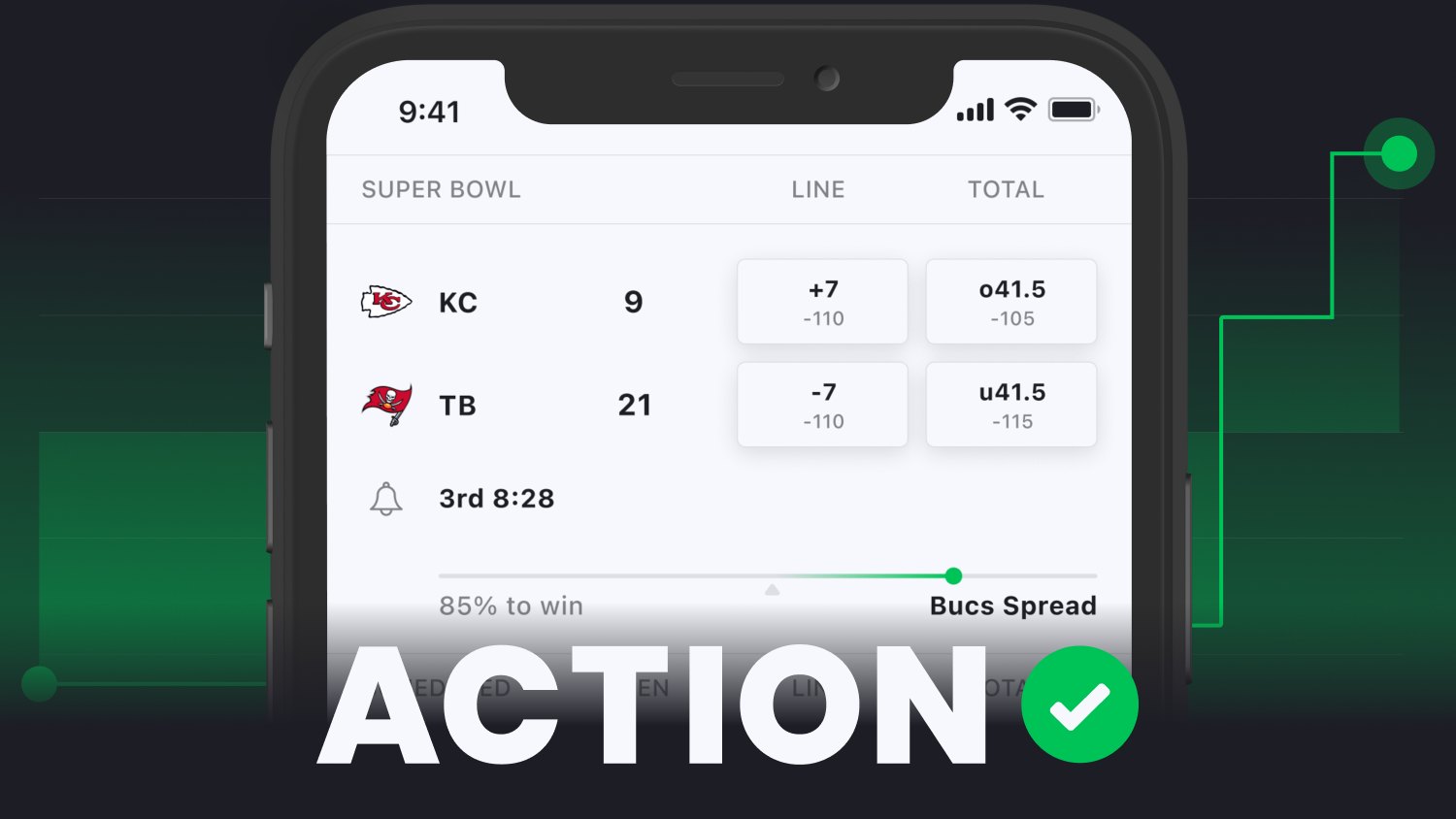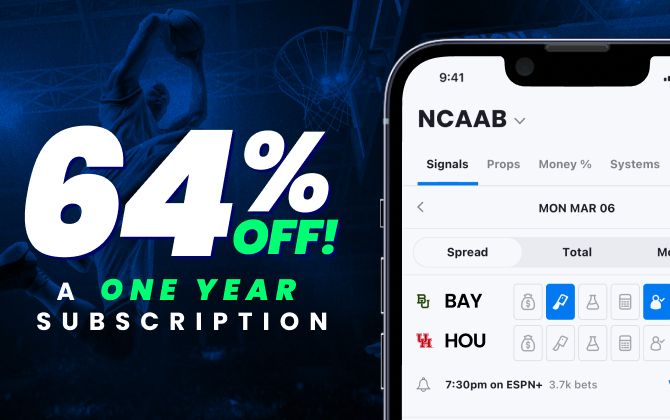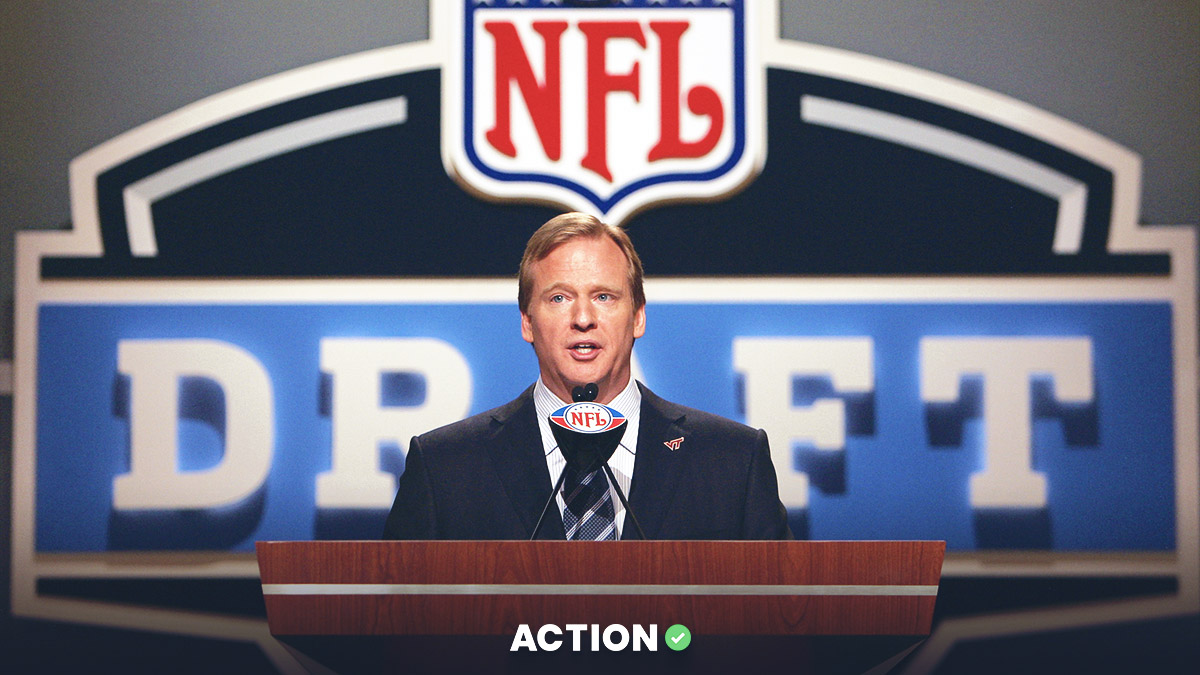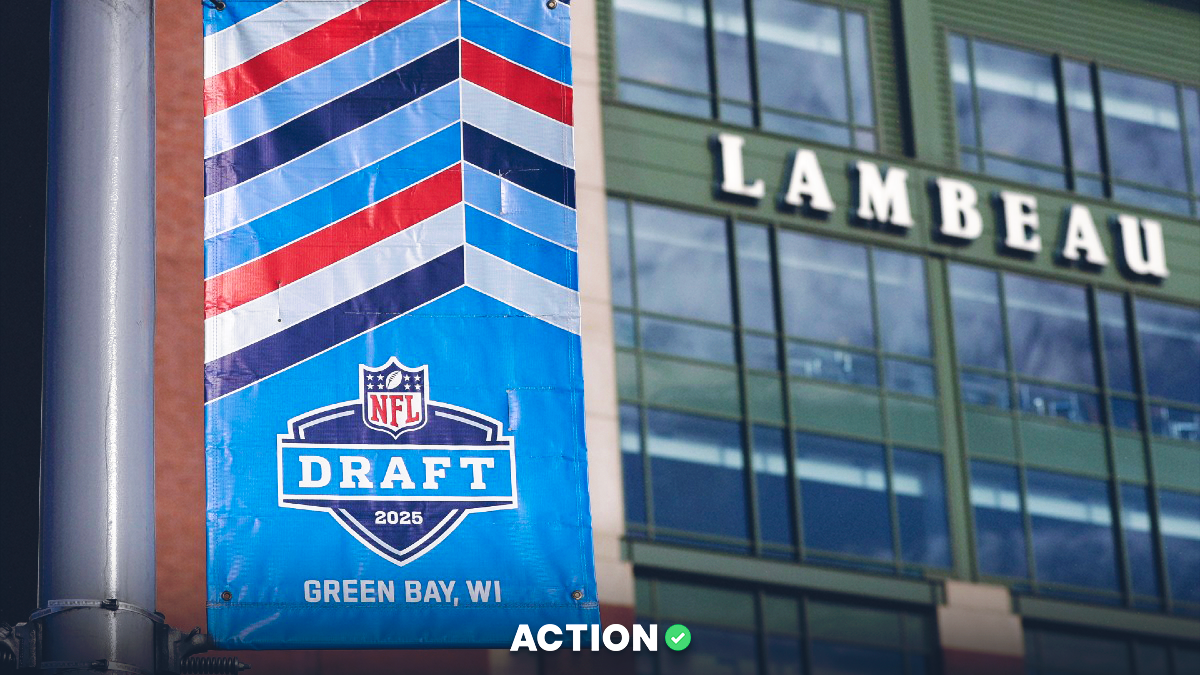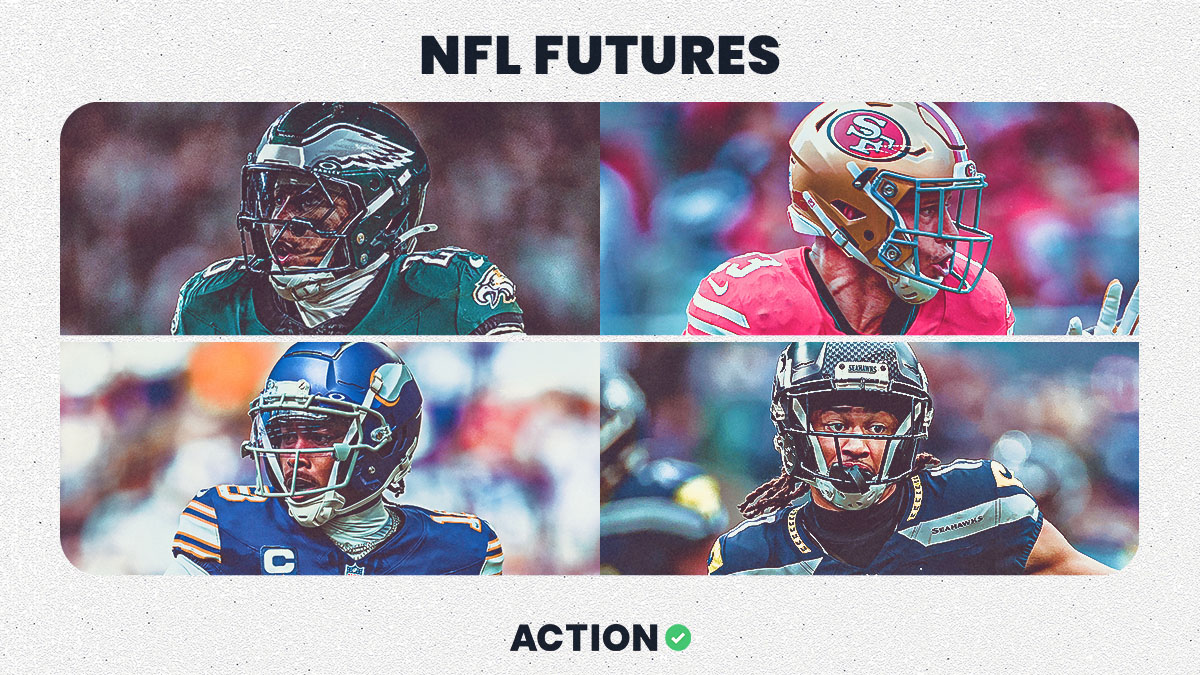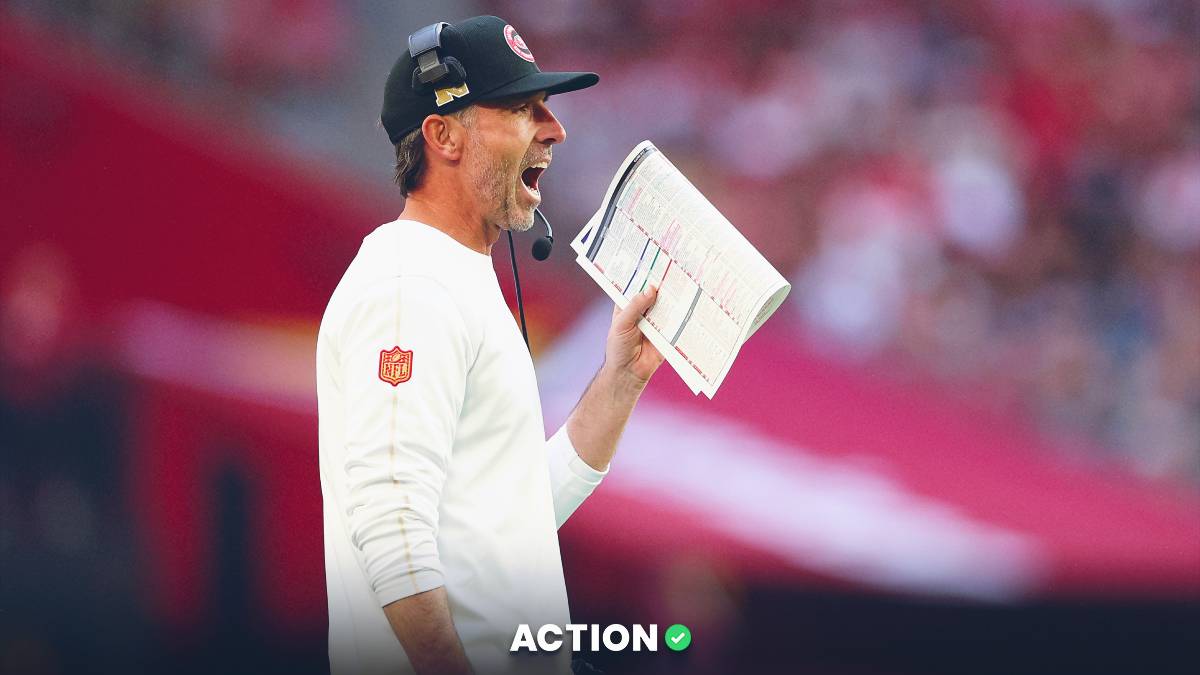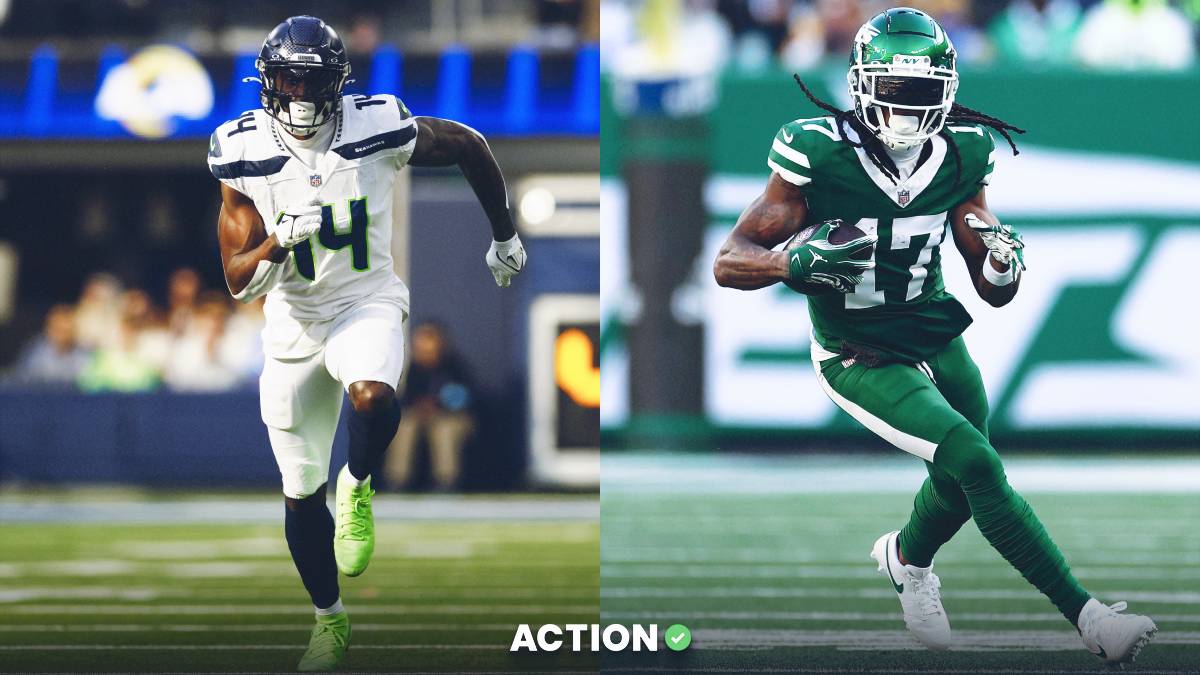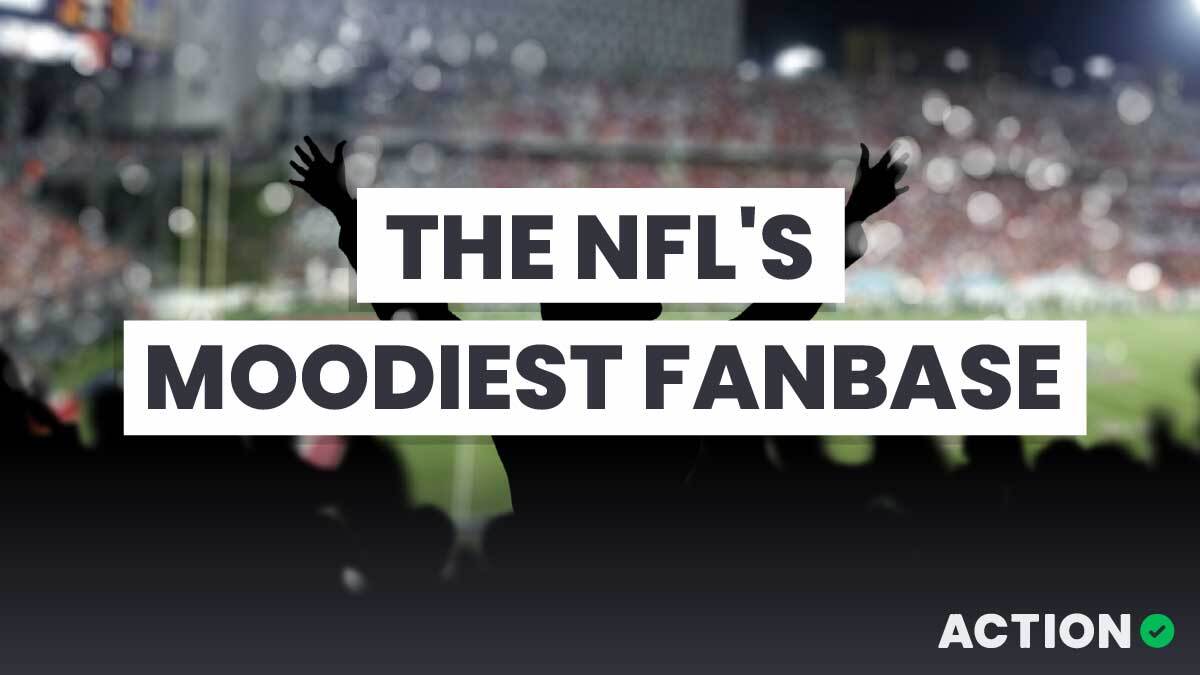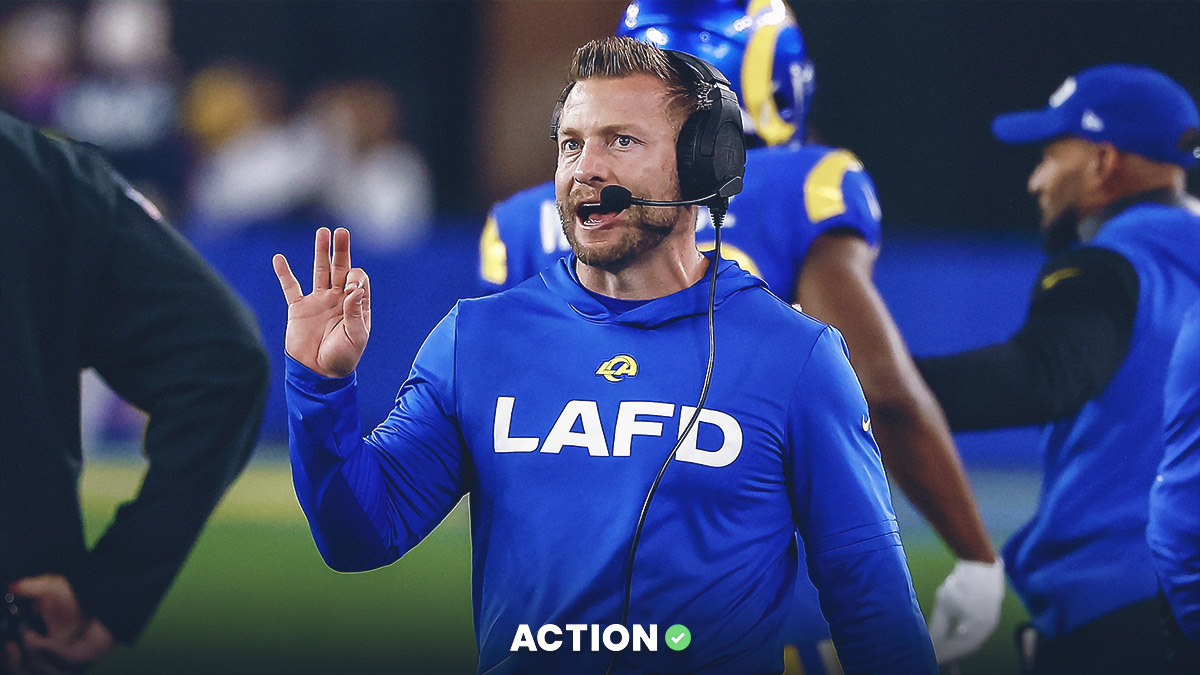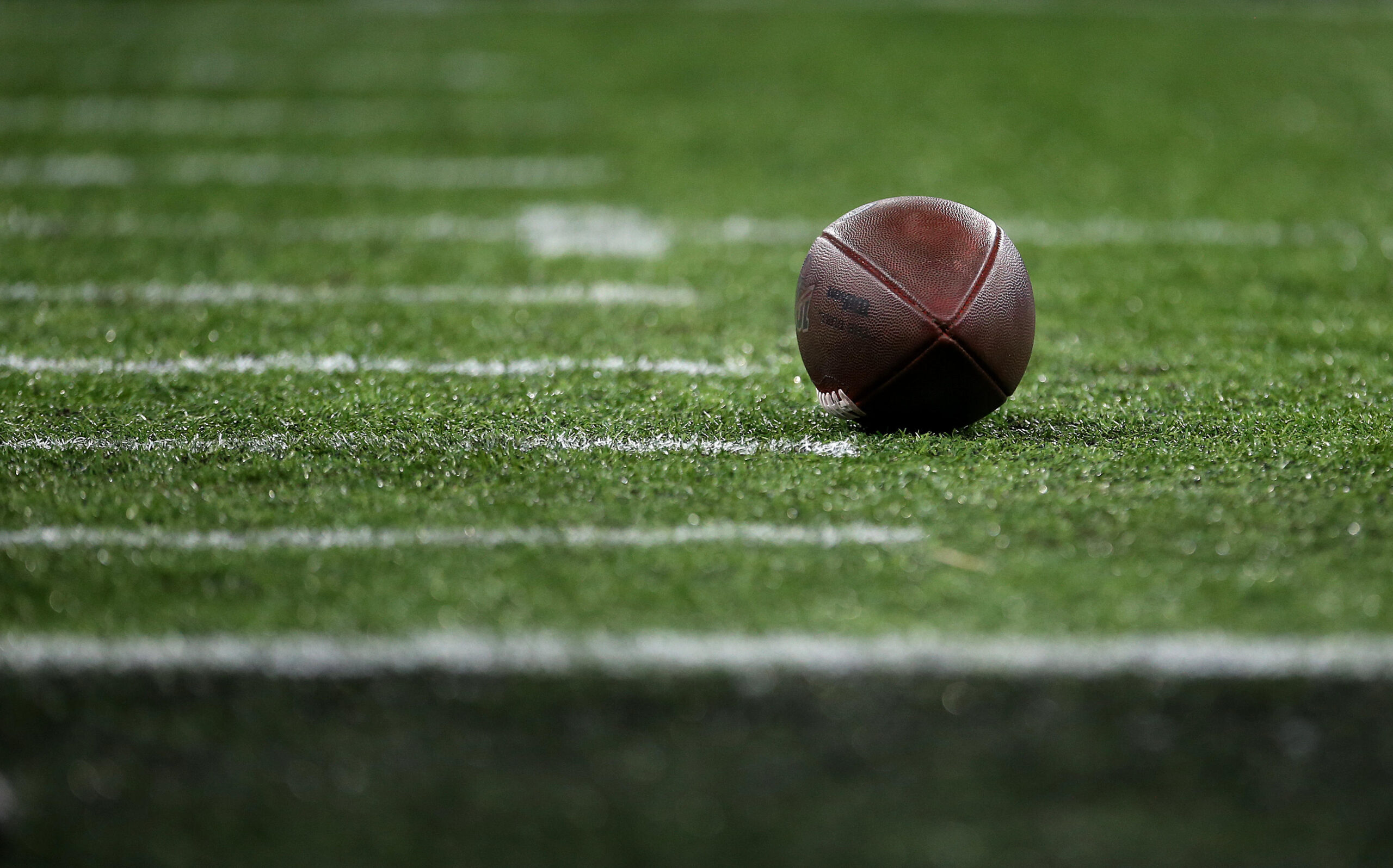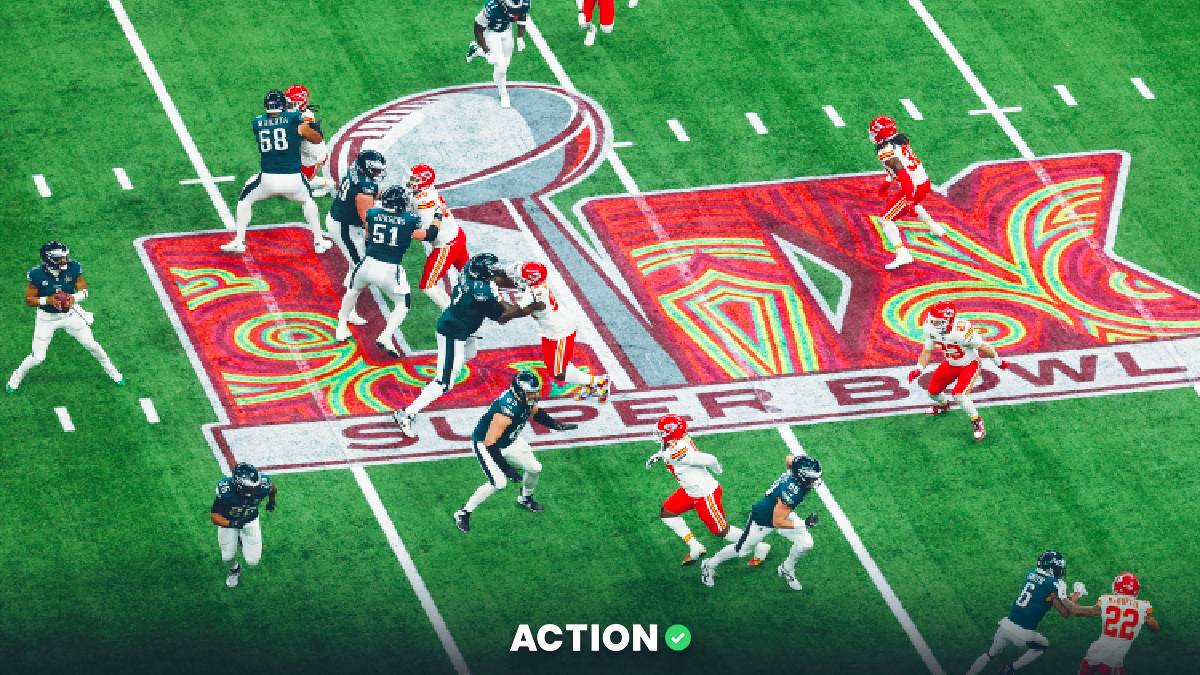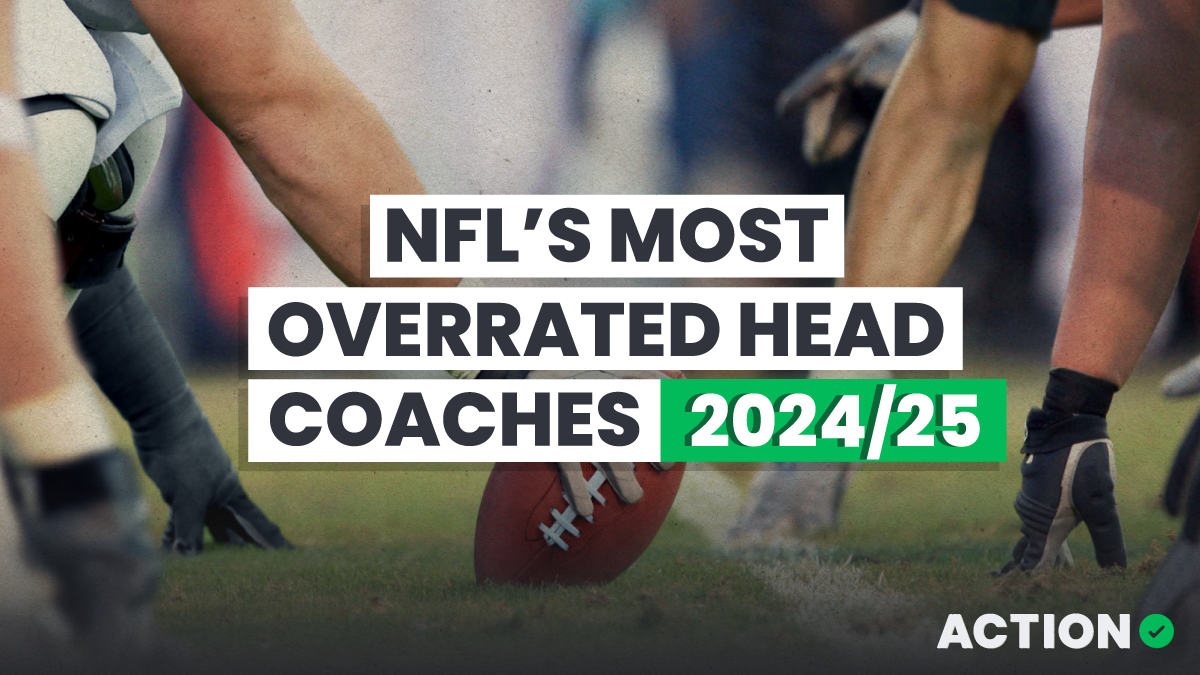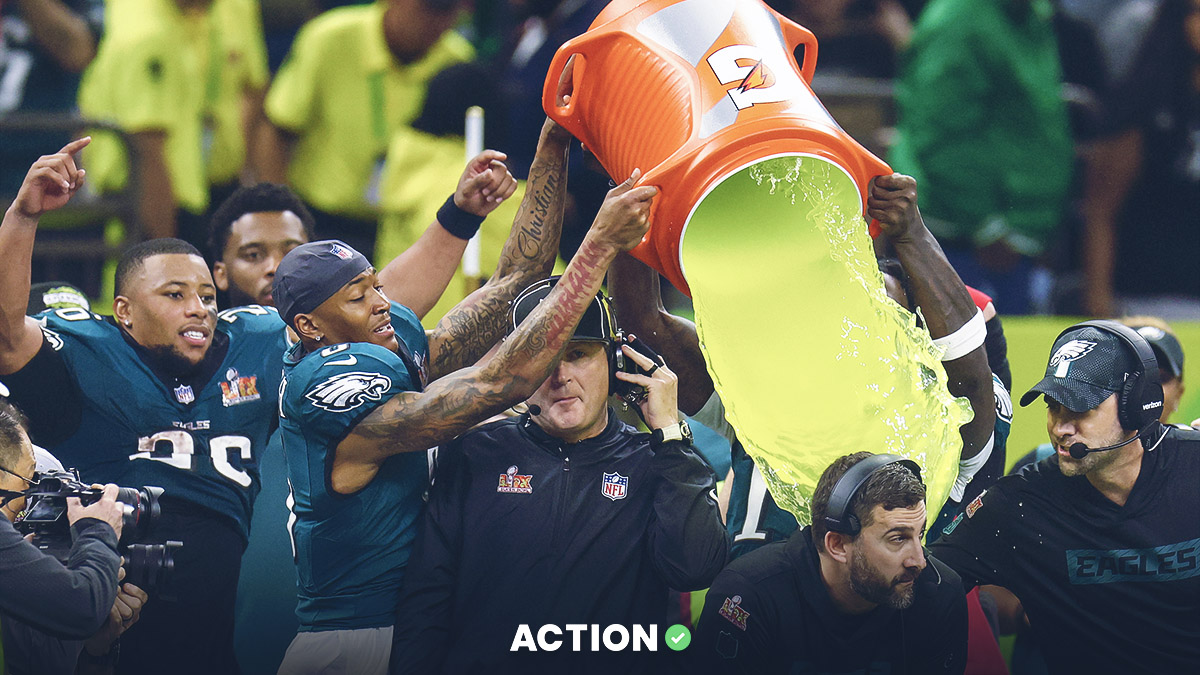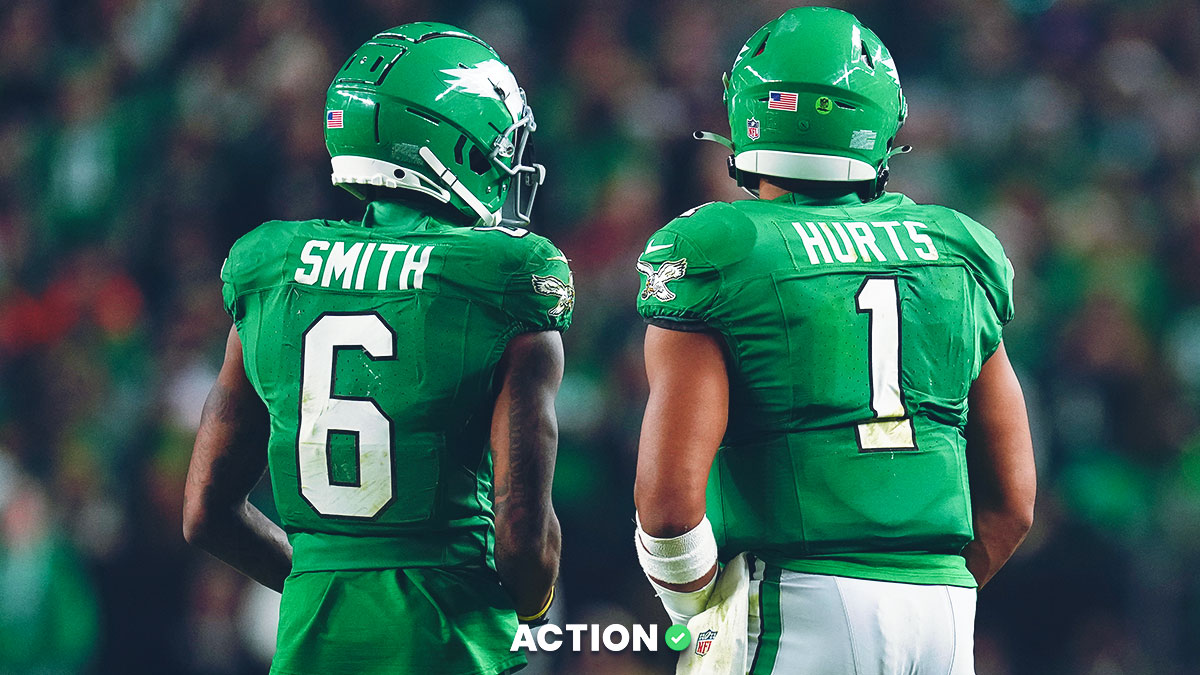Contrary to his belief, Aaron Rodgers did announce on Wednesday that he intends to play for the New York Jets next season. All that needs to happen is a trade from the Green Bay Packers.
The future Hall of Famer represents a significant upgrade for a Jets offense that trotted out the likes of Zach Wilson, Mike White and Joe Flacco at quarterback last season. Rodgers will be surrounded by a young, talented cast – Garrett Wilson, Breece Hall, Elijah Moore and others — and has a stout defense that ranked fifth in total defensive DVOA in 2022.
As of Wednesday afternoon, when Rodgers went on the Pat McAfee Show, the Jets were +1500 to win the Super Bowl, which is tied for the sixth-lowest odds with the Cowboys.
Is this everything the Jets need to win their first Super Bowl since 1969? Well, not so fast … Action Network’s Chris Raybon and Brandon Anderson aren’t exactly sold on Rodgers’ Jets quite yet. Read their analysis on the move and how it affects Jets futures below.
Chris Raybon: The first thing to understand about the Jets: While they enter the offseason with an elite defense that ranked fifth in DVOA last season, their offense is more than just a quarterback away from Super Bowl contention.
- The Jets were 29th in PFF pass blocking grade (59.2). For comparison, the Packers were third (77.6).
- The Jets were 32nd in Adjusted Line Yards (3.82); the Packers were second (4.85).
- The Jets were 32nd in yards after contact per rush (1.24); the Packers were ninth (1.82).
- The Jets were 21st in PFF receiving grade (71.4); the Packers were 23rd (70.3).
The biggest concern is the offensive line.
Entering his age-40 season, Rodgers needs to be protected. Without significant improvement, the Jets could easily go down as Rodgers’ worst pass-blocking line in over a decade — the Packers have ranked 11th or better in PFF pass-blocking grade every year since 2010. A slimmed-down Mekhi Becton alone will not cure New York's O-line ills, and it remains to be seen if Becton can even stay on the field — much less perform at a high level — after missing all but one game over the past two seasons.
It’s also a concern that guard Laken Tomlinson, who is entering his age-31 season, has one of the highest cap hits on the team and posted the worst season of his career last year with a PFF grade of 56.8, which ranked 58th of 77 qualified guards.
The Packers’ receiving corps was thought to be the main thing holding Rodgers back last season. PFF grades obviously aren’t the be-all and end-all, but it’s still a bit disconcerting to see that independent of quarterback play, and despite the presence of Offensive Rookie of the Year Garrett Wilson, Jets receivers rated about the same as the Packers.
The return of Breece Hall should fix the Jets’ issues at running back, but even that isn’t a sure thing as Hall will be coming off an ACL injury he sustained in late October.
All in all, there’s a good chance that despite possessing a promising defense, the Jets could represent a downgrade, or, at best, a lateral move for Rodgers in terms of supporting cast relative to a Packers team that finished 8-9 last season — just one win better than New York . That means turning the Jets into a Super Bowl contender will require Rodgers to be an upgrade on not only the Jets' disaster of a quarterback room, but also on the 2022 version of himself.
Whether it was due to a finger injury, the loss of Davante Adams or simply the natural process of aging, Rodgers had arguably his worst season in 2022. By some metrics, such as ESPN’s Total QBR, he was barely better than what the Jets had going on at the position.
- Rodgers: 39.3 (27th)
- Mike White: 36.9
- Zach Wilson: 36.4 (29th)
- Joe Flacco 34.2
In fairness to Rodgers, other metrics paint a rosier picture. PFF, for instance, gave Rodgers a grade of 77.5, which ranked 12th among 41 qualified quarterbacks — significantly ahead of White (61.3; 34th), Flacco (53.3; 38th), and Wilson (46.5, 41st). But while PFF’s grades are friendly to Rodgers, they’re much kinder to Josh Allen (91.6; first), Patrick Mahomes (91.3; second) and Joe Burrow (90.8; third).
By jumping to the AFC, Rodgers enters a conference where reaching the Super Bowl means getting past the league’s three best quarterbacks. Over the past four seasons, the AFC has gone through either Mahomes or Burrow. Mahomes’ Chiefs have won three of the past four AFC Championships, with Burrow’s Bengals winning the other by knocking off Mahomes in the 2021 AFC Championship game. Allen elevated his game to elite status in 2020, and he has since seen all of his postseason losses come at the hands of either Mahomes (twice) or Burrow (once).
Could Rodgers get back into the upper tier of quarterbacks, as he did with consecutive MVP campaigns in 2020 and 2021 after a string of middling seasons in the late 2010s? It’s possible, but far less likely than it was last time.
For one, a dip in performance at ages 35-36 is concerning, but not nearly as concerning as one entering age 40. Secondly, while his performances leading up to 2020 were subpar for Rodgers, they were generally still around league average or better. Last season, however, his performance ranged anywhere from below average to downright bad in many metrics, such as his 27th-place ranking in QBR (39.2), 24th in yards per attempt (6.8) and 20th in completion percentage (64.6%). Thirdly, no matter how Rodgers was playing, he could always be counted on to take care of the football at an elite level, whereas last season his 12 picks were his highest since his first full season as a starter in 2008.
Rodgers hasn’t led his team to the Super Bowl since 2010, a span in which he produced four MVP seasons. Despite a fifth MVP-caliber campaign being less likely than ever for Rodgers, sportsbooks moved the Jets’ Super Bowl odds as low as 16/1 in anticipation of the move. For context, the Packers were 14/1 to win the Super Bowl coming off Rodgers’ MVP season in 2020 and 12/1 to win the Super Bowl coming off his MVP season in 2021. It makes no sense to pay MVP prices for Rodgers coming off his worst season and going to a team that is no guarantee to be any better than the Packer teams he’s been on.
It’s clear the Jets’ Super Bowl odds are overpriced, but what about their division odds? At +250, the price doesn’t look too bad at first glance … until you realize a Dolphins team with just as much, if not more, upside is priced in the +425 range.
Given the aggressive pricing of Jets futures by sportsbooks, the Jets will be a fade in all markets for me.
Note: DVOA and Adjusted Line Yards via Football Outsiders. Yards after contact via Pro Football Reference. Historical odds via SportsOddsHistory.com. All other stats via PFF.
Brandon Anderson: Doesn't it feel like Aaron Rodgers has been a New York Jet for awhile now? This has always been the most likely outcome, and that's the key as we think about betting on the Jets led by Rodgers.
I wrote a month ago about the Jets as maybe the most QB-ready roster in the league. The defense was downright nasty last season, and the offense returns two ROY candidates in Garrett Wilson and Breece Hall plus a young, improving offensive line.
I also compared the Jets to next year's version of the 49ers: an elite coaching staff, weapons like Quinnen Williams and Sauce Gardner anchoring an attacking defense and all sorts of weapons on offense. All that was missing was a quarterback good enough to make everything go.
Rodgers had a disappointing season as the Packers fell short of the playoffs, but this is a man who just won back-to-back MVPs. Even if he can't play like the best player in the league at this age, he can certainly engineer a top-level offense with all the talent around him. Combine that with a great defense and it's easy to get excited about investing in Jets Super Bowl odds.
Be careful, though.
Yesterday's intriguing bargain has already been outpriced. The Jets were an interesting mid-long shot at +2500 to win the Super Bowl when I wrote those two articles above. They're down to +1600 now with the Rodgers rumors effectively already priced in, a reduction in over 50% of potential payout. New York is now the sixth or seventh favorite, and those odds will surely shorten further once Rodgers is actually on the roster.
It's too rich a price. Remember, this is the AFC we're talking about — and the AFC East. The Bills still have the better QB and roster, and Bill Belichick's Patriots and Tua Tagovailoa's Miami attack are tough tests, too.
The Jets are no lock to even make the playoffs, and if they do, it'll most likely be as a wildcard. That means winning three road games against tough AFC opponents — don't forget about Patrick Mahomes, Joe Burrow, Trevor Lawrence and Justin Herbert — just to get to the Super Bowl.
It's not that the Jets can't make good on the potential, but now is not the time to invest. Buy low, sell high. Jets stock is at its peak right now in its imaginary form, so you're buying at New York's highest price.
If anything, this might be a chance to invest in Buffalo or another AFC East team at a slight discount. There will be opportunities to back the Jets during the season, but now is not the time.



